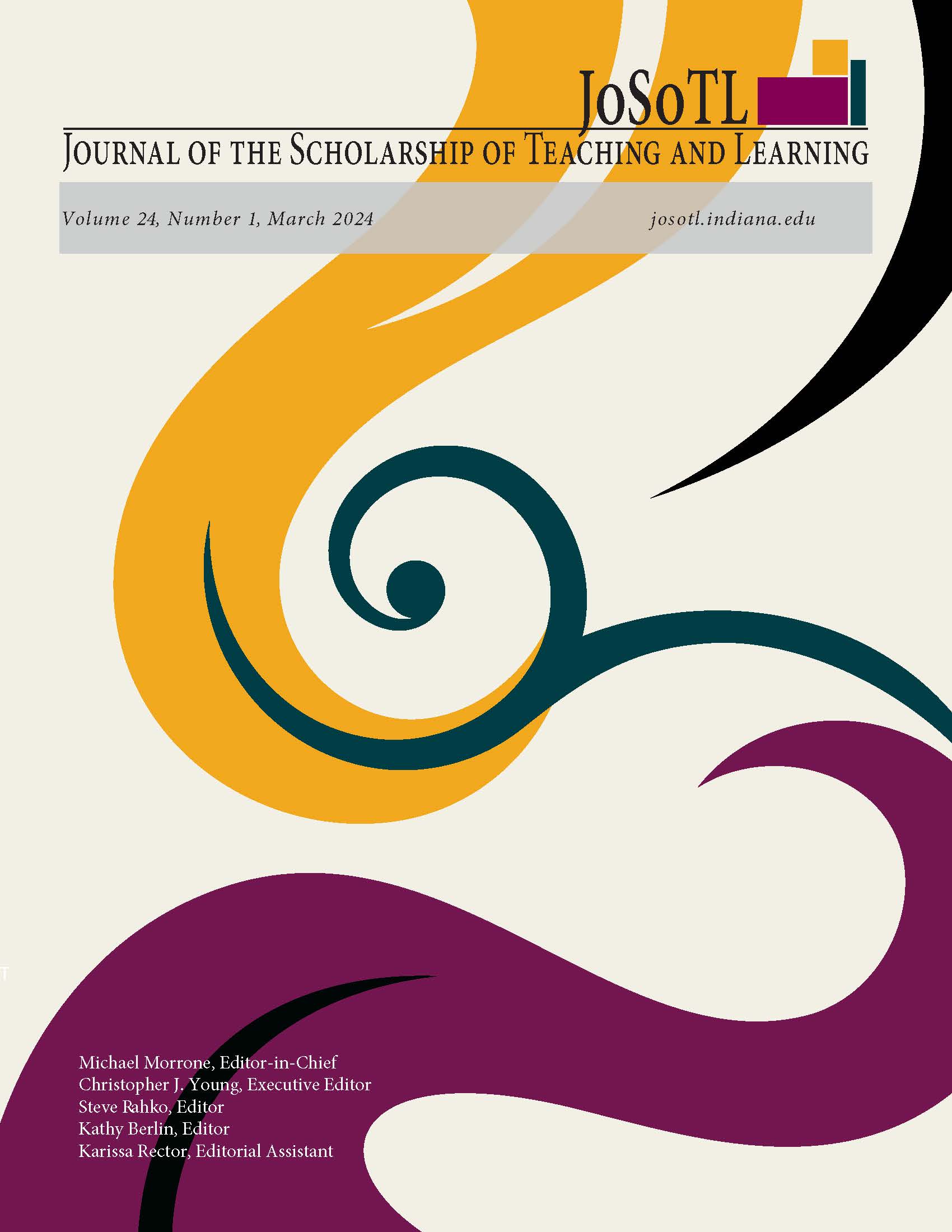Navigating Controversy and Hot Topics in Required Diversity Courses
Main Article Content
Abstract
Required undergraduate diversity courses often expose students to topics and worldviews which may push them out of their comfort zones and prompt dissonance and even resistance. This paper reports on interviews with 68 faculty members at five predominantly white institutions in the Southern United States, detailing how they navigated discussion of controversial and “hot” topics in required diversity courses. Most instructors evidenced a critical-functionalist perspective in their approaches, as they aimed to expose students to critical social issues, yet were concerned that resistance could disturb the learning process. Primary strategies for handling hot topics in class included proactively establishing community and safety and normalizing conflict, and reactively acknowledging and surfacing multiple perspectives, as well as connecting content to students’ lived experiences. Some instructors also reported a lack of controversy or conflict in their classrooms, which they variously attributed to student characteristics or their own disinclination to promote heated discussion. We conclude the paper with implications for faculty, educational developers, administrators, and institutions.
Downloads
Article Details

This work is licensed under a Creative Commons Attribution 4.0 International License.
- Authors retain copyright and grant the Journal of the Scholarship of Teaching and Learning (JoSoTL) right of first publication with the work simultaneously licensed under a Creative Commons Attribution License, (CC-BY) 4.0 International, allowing others to share the work with proper acknowledgement and citation of the work's authorship and initial publication in the Journal of the Scholarship of Teaching and Learning.
- Authors are able to enter separate, additional contractual agreements for the non-exclusive distribution of the journal's published version of the work (e.g., post it to an institutional repository or publish it in a book), with an acknowledgement of its initial publication in the Journal of the Scholarship of Teaching and Learning.
- In pursuit of manuscripts of the highest quality, multiple opportunities for mentoring, and greater reach and citation of JoSoTL publications, JoSoTL encourages authors to share their drafts to seek feedback from relevant communities unless the manuscript is already under review or in the publication queue after being accepted. In other words, to be eligible for publication in JoSoTL, manuscripts should not be shared publicly (e.g., online), while under review (after being initially submitted, or after being revised and resubmitted for reconsideration), or upon notice of acceptance and before publication. Once published, authors are strongly encouraged to share the published version widely, with an acknowledgement of its initial publication in the Journal of the Scholarship of Teaching and Learning.
